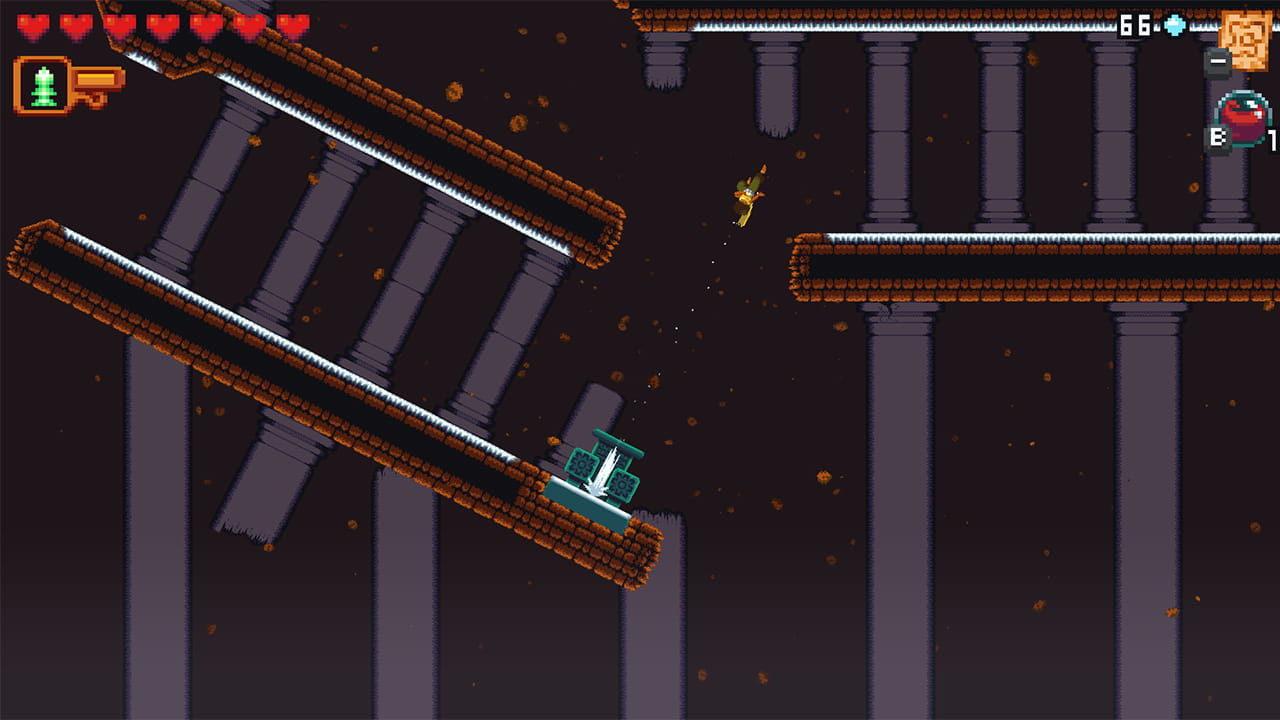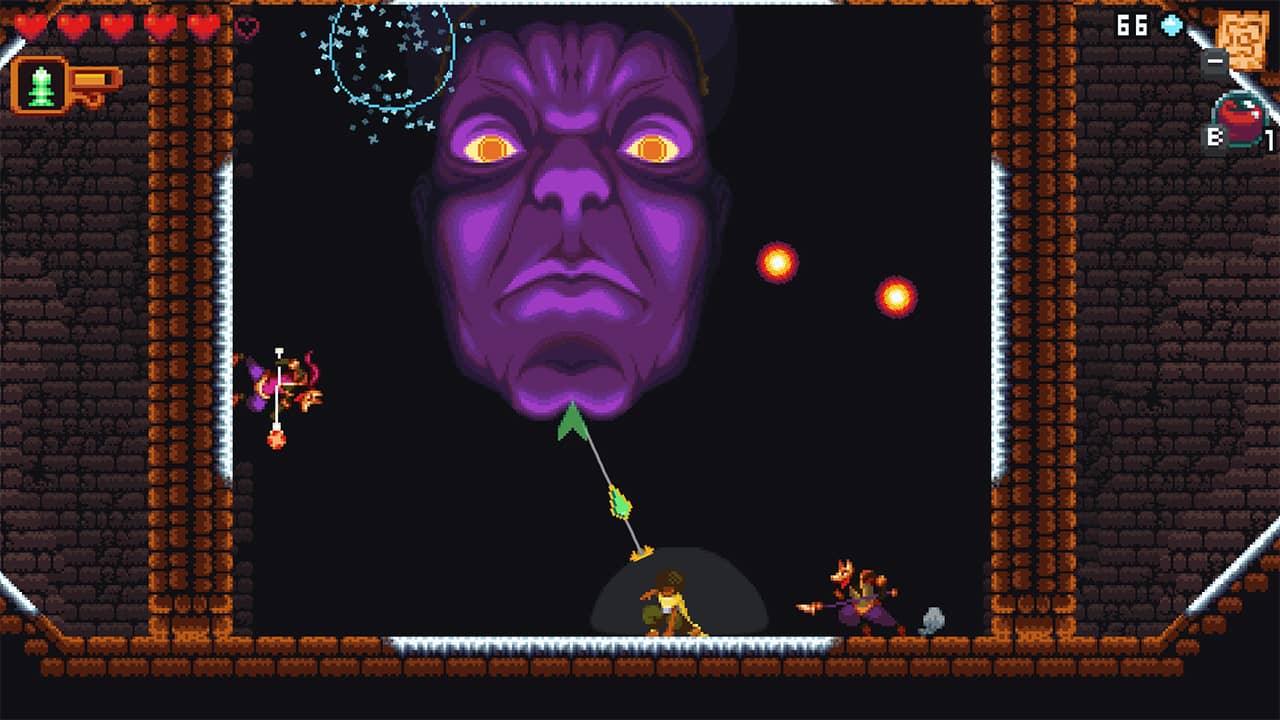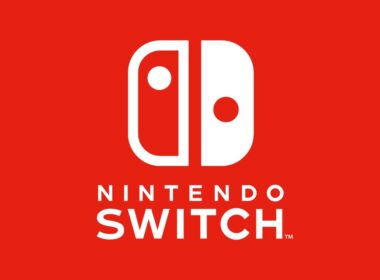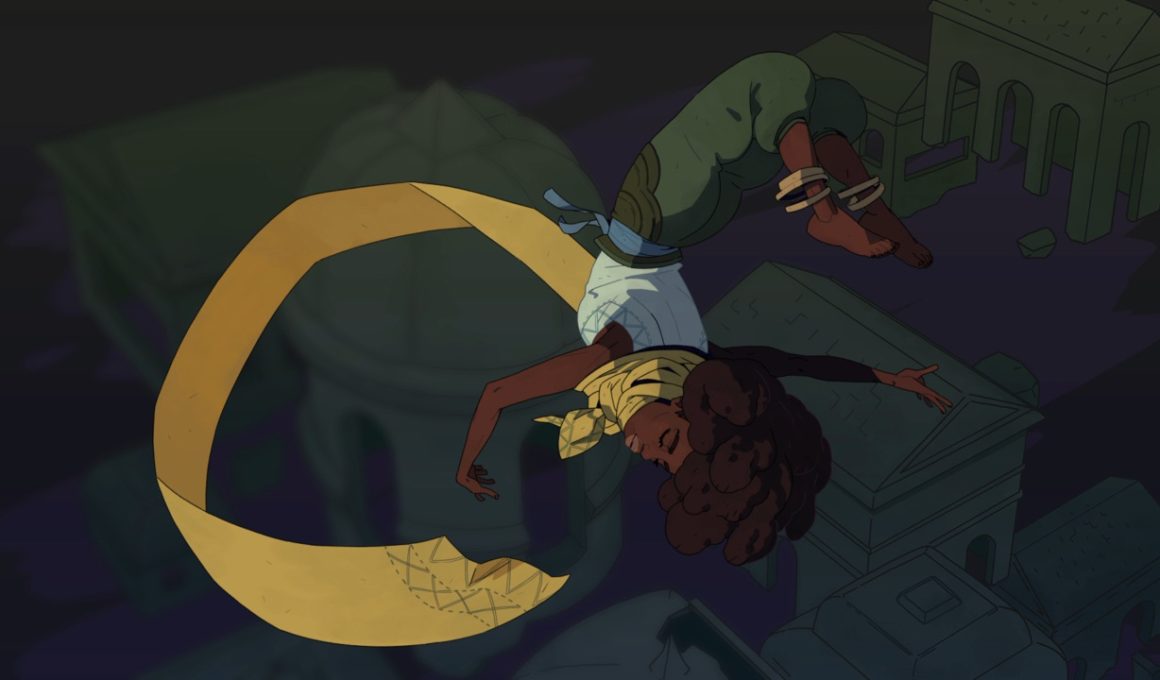Loosely based on the wife of 17th-century Afro-Brazilian leader Zumbi dos Palmares, Dandara was also an inspirational figurehead in her own right. While not a lot about her is actually known, her reputation as a warrior, along with her contribution to the Palmarinos rebellion against slavery sets the underlying tone of this rather abstract dystopian indie title.
In a similar vein to her legendary counterpart, Dandara aims to rid the land of Salt from the oppression that heavily burdens it. As gravity has no fixed law in this topsy-turvy world, instead of merely running and gunning your way through corridors like most Metroidvania games, you can only ever hop between set landmarks laid out before you.
This is the result of Brazilian developer Long Hat House’s initial approach towards a game of this style with a touchscreen in mind. However, I still found that using traditional button input on Nintendo Switch was the more superior method of play. It just feels much more natural to aim your Left Stick towards whichever direction you are allowed to zip towards while launching yourself there with a push of a button. It’s not a perfect form of navigation by any means, although it certainly makes for an interesting one.

For your main method of attack, you fire an energy projectile that blasts a quiver of magic arrows towards your target. You use a similar input as you do to hop around, except with a different button that you hold down to charge the attack within a 360-degree range. Unfortunately, it can make destroying enemies quite fiddly at times due to the similarity of the input and the need to charge your projectile. It would have been nice to be able to use the Right Stick to shoot as you cannot perform the two actions at once. This small handicap obviously refers back to having touchscreen input in mind for simplicity, although it is a shame that it has not been implemented for the console release.
The idea of multi-gravitational platform hopping does set itself up for some interesting explorational puzzle solving though. Grounds that are just out of range require alternative measures in order to reach them while tackling some enemies does make you think about your approach to avoid taking damage. However, underneath it all, it still feels very similar to how you would expect a standard Metroid-style game to play. While that isn’t necessarily a bad thing, it does make the experience at its core a little less original than I would have hoped.
Of course, this is more down to the boom of Metroidvania games that are available more than anything else, and Dandara undoubtedly does have its own fine level of style. Its dreamlike ambience brings me back to movies such as The Never Ending Story and Labyrinth by how interestingly designed some of the few characters are that you can stumble across. The environments that connect it all together are varied nicely between sections of the map, even though the richness of some backgrounds can sometimes cannibalise the look of others.

One thing that I did feel was a little out of place was the Dark Souls elements that are at play. Save points in the form of campfires are few and far between, and the recollection of your currency after death can be an inconvenient distraction. This is especially the case when venturing to seek an alternative route. It also makes upgrading your stats quite frustrating especially considering how much you will rely on them when facing the final boss. While this is a key feature in Dark Souls, Dandara just doesn’t feel as satisfying a learning experience when compared to the prepare to die title. The enemies can be very awkward to learn due to how congested areas can be and your navigational and primary attack limitations can prove to be a hindrance as a result.
Using your currency in the form of salt slowly upgrades various vitals, but even when increasing other abilities, your primary weapon never improves as it just takes far too long to charge with such a limited firing range. I never really felt that I could ever build a solid balance with upgrading my vitals either, due to completely losing my salt countless times. This was more so the case later on, as it can become frustratingly difficult with its fair share of incredibly cheap enemies that come into play. This forced me to farm salt near a campfire in order to respawn the enemies that I needed to level me up, which is a pet peeve of mine in any game. Also, certain other perks that can be acquired just seem to arrive too little too late – abilities that would be a godsend if obtained earlier tending to be almost redundant once you actually have access to them.
It can even seem this way when unlocking shortcuts in areas. You always seem to unlock them when there really isn’t much of a need to go back. The game also has a tendency to make you do everything the long way round as if to try and pad out the 5-6 hour experience. While again, a predominant feature of the Metroidvania formula, it can feel somewhat unbalanced at times in this case.
This is a shame really because there were plenty of moments that had me completely engrossed in its world. I really liked how the screen would spin at times, driving that directionless theme even further and Dandara as a character is such an appealing presence. The handful of boss fights do make good use of the gameplay mechanics with an incredible soundtrack to accommodate them. There’s plenty at show here to give a lasting impression, it’s just a pity that a lot of it was with rage.
Just like the world of Salt, Dandara is full off ups, downs, lefts and rights. While it does try to have a crack at creating a unique Metroidvania experience, the very control mechanic that gels it all together can at times be its biggest flaw. Bouncing around in an empty room gives you a belief of a watertight control system, yet when facing a room full of foes and bullets all firing towards you in such an unorthodox pattern it gives you the sense that luck plays a part in the progress. As much as I liked the overall idea of Dandara, it did manage to provoke me in ways where I had to solemnly apologise to my little Nintendo Switch.
Version Tested: Nintendo Switch
Review copy provided by Raw Fury





